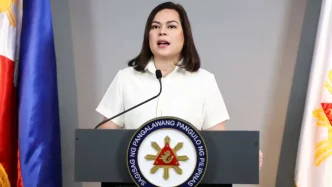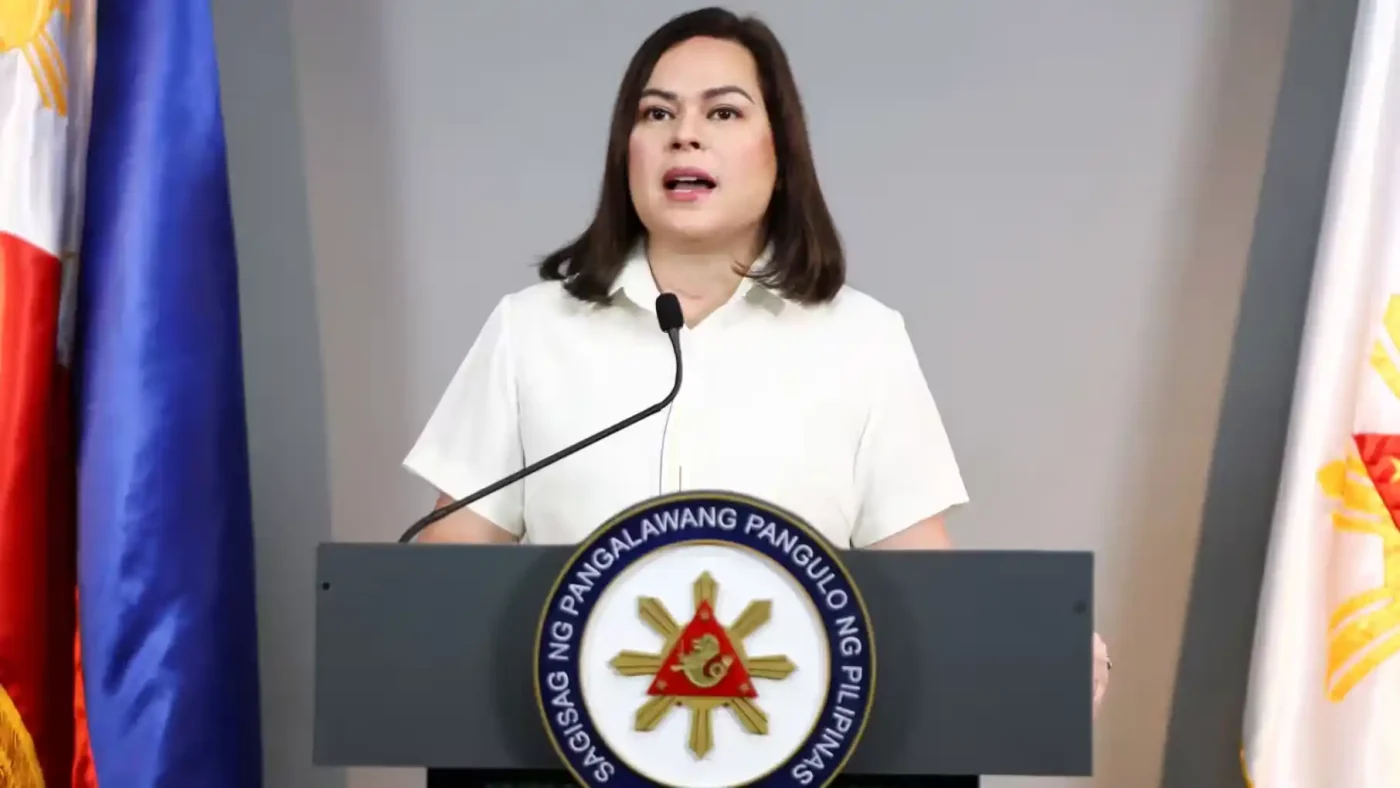The Philippine Senate has outlined a formal timetable for the impeachment trial of Vice President Sara Duterte, marking a significant escalation in the country’s ongoing political drama. Senate President Francis Escudero announced that the trial, stemming from allegations of misconduct and misuse of public funds, is set to commence in the coming weeks, with proceedings expected to draw intense public and international scrutiny. This development signals a deepening rift within the nation’s political elite, as Duterte, daughter of former President Rodrigo Duterte, faces serious charges that could reshape the Philippines’ leadership landscape.
Impeachment Process Gains Momentum
The impeachment complaint against Vice President Sara Duterte was filed in late 2024 by a coalition of opposition lawmakers and civil society groups, accusing her of misappropriating confidential funds allocated to her office. The allegations center on millions of pesos—reportedly 125 million Philippine Pesos (US$2.2 million)—intended for intelligence and security operations during her tenure as Education Secretary and now as Vice President. Critics claim the funds were diverted for personal or political gain, though no concrete evidence has been publicly confirmed at this stage.
Senate President Escudero, addressing the media on Tuesday, emphasized the Senate’s commitment to a fair and transparent process. “We are duty-bound to uphold the Constitution and ensure accountability at the highest levels of government” he stated. “The trial will proceed with strict adherence to legal standards, and we aim to conclude deliberations within a reasonable timeframe.” According to the announced schedule, pre-trial hearings are slated for early June 2025, with the full trial expected to begin by mid-June and potentially extend into late July, depending on the complexity of evidence presented.
Political Context and Power Struggles
The impeachment trial comes at a time of heightened political tension in the Philippines, where alliances and rivalries among powerful political dynasties often shape national policy. Sara Duterte, who ran on a unity ticket with President Ferdinand Marcos Jr. in the 2022 elections, has faced growing friction with the administration. Analysts suggest that the impeachment push may be tied to a broader power struggle between the Duterte and Marcos camps, two of the country’s most influential political families. This rift became particularly evident after Duterte resigned from her cabinet post as Education Secretary in mid-2024, citing policy disagreements.
Political scientist Maria Reyes of the University of the Philippines noted that the impeachment could have far-reaching implications. “This isn’t just about Sara Duterte’s alleged misconduct—it’s a proxy battle for control of the political narrative ahead of the 2028 elections” she said. Reyes added that public perception of the trial’s fairness will be critical, as any hint of bias could further polarize an already divided electorate. If convicted, Duterte would be removed from office, potentially altering the balance of power and opening the door for a Marcos-aligned successor.
Allegations and Defense
At the heart of the impeachment case are claims that Duterte misused confidential funds during her time as Education Secretary and in her current role as Vice President. The House of Representatives, which initiated the impeachment process, voted in late 2024 to endorse the complaint, meeting the constitutional requirement of a one-third majority to transmit the case to the Senate for trial. Specific accusations include the alleged transfer of funds to non-existent programs and the lack of transparency in accounting for expenditures.
Duterte has vehemently denied the charges, calling them “politically motivated” and an attempt to tarnish her family’s legacy. In a public statement last month, she asserted, “I have always acted in the best interest of the Filipino people and adhered to the law.” Her legal team has signaled plans to challenge the admissibility of evidence and question the motives of her accusers during the trial. Supporters of the Vice President, including several local government leaders aligned with the Duterte family, have rallied behind her, framing the impeachment as a witch hunt orchestrated by political rivals.
Under Philippine law, an impeachment conviction requires a two-thirds majority in the Senate, currently composed of 24 members. With the chamber’s composition including senators from various political factions, the outcome remains uncertain. Observers note that several senators have historical ties to both the Marcos and Duterte families, which could influence their votes or lead to abstentions.
Public Reaction and Regional Implications
The announcement of the trial timetable has sparked mixed reactions among Filipinos. In Manila, small protests both for and against Duterte have emerged, with citizens voicing concerns about governance and accountability. “We need leaders we can trust with public money” said Ana Lopez, a 34-year-old teacher attending a rally in Quezon City. “If these allegations are true, she must be held accountable.” Conversely, Duterte loyalists argue that the impeachment is a distraction from more pressing issues like inflation and unemployment, which continue to burden ordinary Filipinos.
Regionally, the trial is being closely watched by Southeast Asian neighbors, where political stability in the Philippines often impacts trade and security cooperation. The Philippines plays a key role in ASEAN, and any domestic upheaval could affect ongoing discussions on maritime disputes in the South China Sea, where Manila has been a vocal critic of China’s actions. A prolonged political crisis might also embolden opposition forces in other countries facing similar governance challenges, analysts warn.
Legal and Constitutional Stakes
The impeachment process in the Philippines is governed by strict constitutional guidelines, with the Senate acting as the trial court and senators serving as jurors. Chief Justice Alexander Gesmundo is expected to preside over the proceedings, ensuring compliance with legal norms. Legal experts highlight that the burden of proof lies with the prosecution—composed of House representatives—to demonstrate “culpable violation of the Constitution, treason, bribery, graft and corruption, other high crimes, or betrayal of public trust,” as outlined in Article XI of the 1987 Constitution.
One key point of contention will likely be the definition of “betrayal of public trust,” a relatively broad charge that has been invoked in past impeachments, including that of former Chief Justice Renato Corona in 2012. Duterte’s defense is expected to argue that the allegations, even if proven, do not meet the threshold for removal from office. Meanwhile, prosecutors will aim to present documentary evidence and witness testimonies to substantiate claims of financial impropriety.
Looking Ahead: A Nation at a Crossroads
As the Philippine Senate prepares for the historic impeachment trial of Vice President Sara Duterte, the nation stands at a critical juncture. The outcome could either reinforce public trust in democratic institutions or deepen cynicism about political maneuvering among the elite. Beyond the legal ramifications, the trial will test the resilience of the country’s fragile political alliances and set a precedent for how allegations of misconduct are addressed at the highest levels of government.
For now, Filipinos and international observers alike await the unfolding drama, with questions lingering about the strength of evidence, the impartiality of the Senate, and the broader impact on the Philippines’ democratic fabric. As proceedings draw near, the stakes could not be higher for Sara Duterte, her family’s political legacy, and the future direction of a nation grappling with its complex history of power and accountability.
















